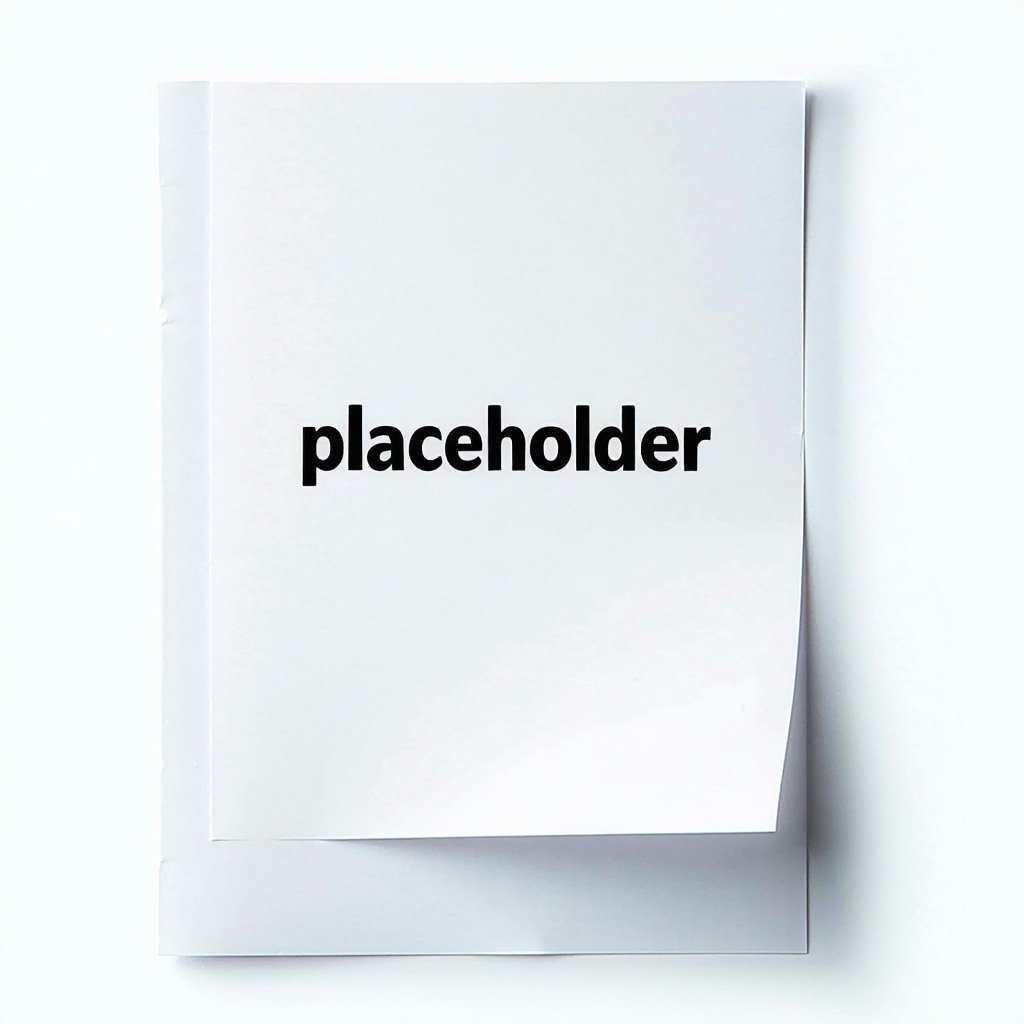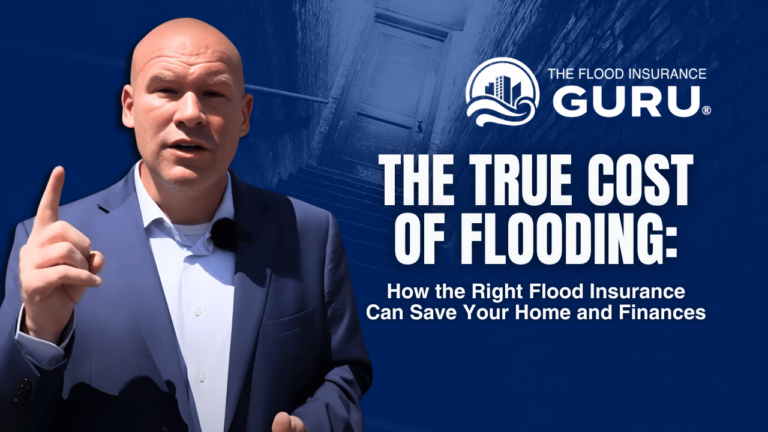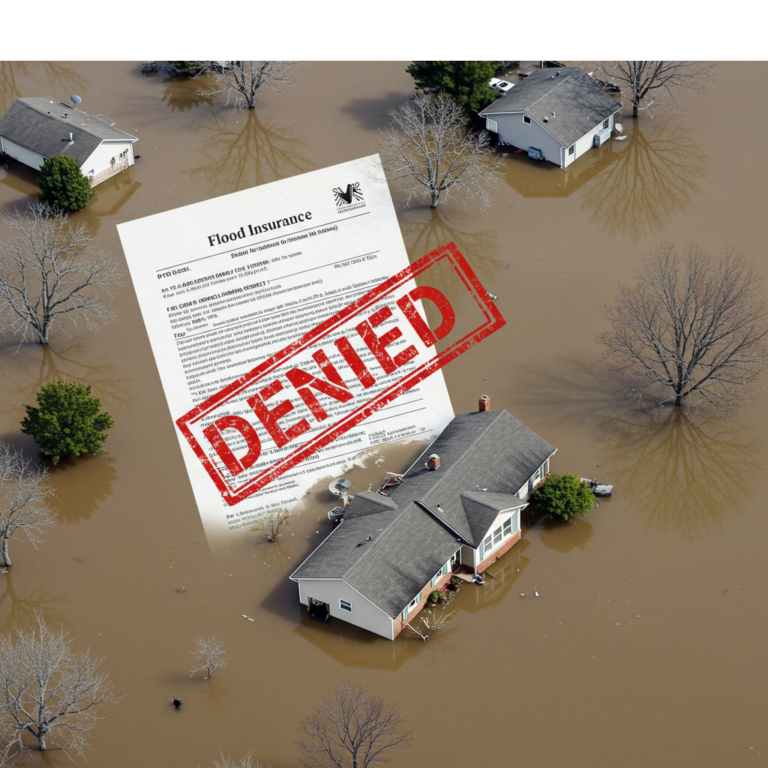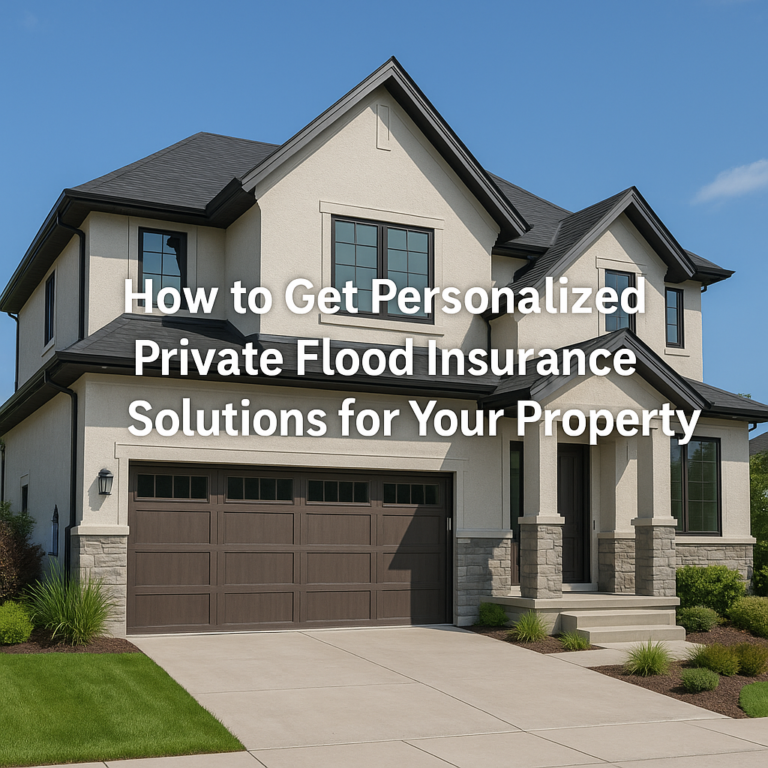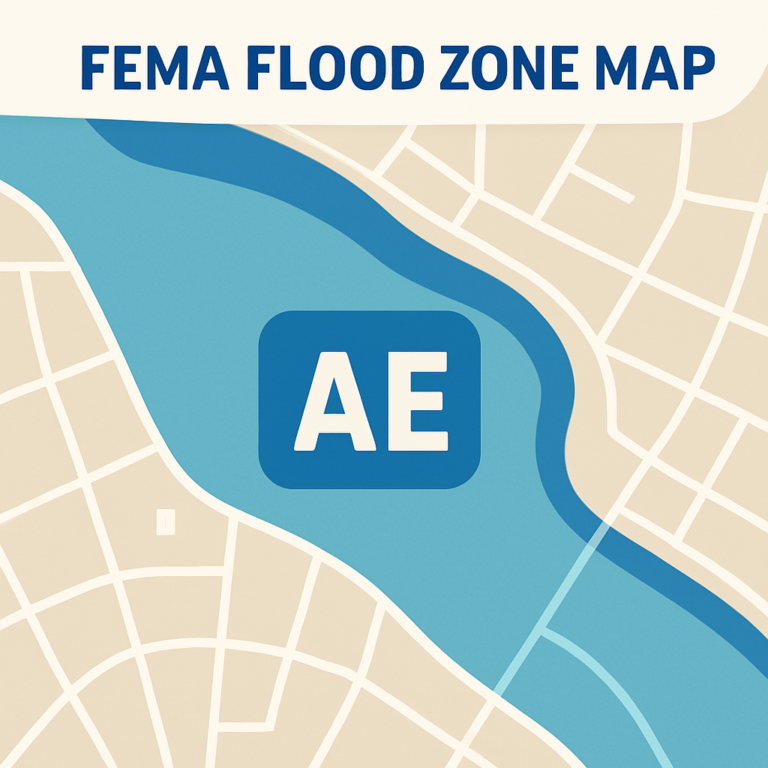Key Factors Influencing Flood Insurance Prices in Houston
Why Do Flood Insurance Costs Vary in Houston?
Is Your Houston Home at Risk of Flooding? Here’s How to Find Out
Flood insurance pricing in Houston varies widely depending on home location, construction type, and flood risk. Many homeowners assume insurance rates are standardized, but premiums are calculated using multiple risk-based factors.
What You’ll Learn in This Guide
- How much flood insurance costs in Houston and why it varies
- How home location and characteristics impact pricing
- Ways to reduce flood insurance costs through mitigation and discounts
Understanding these factors will help homeowners secure the right level of coverage at the best possible price.
Let’s break it all down so you can make an informed decision about flood insurance coverage in Houston.
Understanding Flood Insurance Costs in Houston
Houston’s flood insurance rates are influenced by multiple factors, including geographic risks, home construction, and policy details.
Many people rely on FEMA flood maps to determine flood risk, but these maps are mainly regulatory tools—not real-time risk assessments.
What is the Average Cost of Flood Insurance in Houston?
- Average flood insurance cost in Houston: $1,200 – $1,500 per year
- National Flood Insurance Program (NFIP) policies are cheaper than private flood insurance in approximately 70% of cases
- Typical deductible range: $1,250 to $5,000 (each coverage type has a separate deductible)
Cost-Saving Tip
-
Raising your deductible does not always significantly lower your premium. Increasing it by $1,000 might only save $20 per year.
ven if FEMA doesn’t label your home as high risk, that doesn’t mean you’re safe. Always check multiple sources.
Geographic Risks and How They Affect Flood Insurance Rates
Different areas in the Greater Houston region carry different levels of flood risk, which affects flood insurance pricing.
Flood Risk Differences Across Houston Metro Areas
Some of Houston’s surrounding areas have unique geographical risk factors:
High-Risk Areas
- League City & Galveston: High risk due to proximity to the coastline and storm surges
- Downtown & Meyerland: Prone to urban flooding due to poor drainage.
Moderate Risk Areas
- Cypress & The Woodlands: Higher elevation but still at risk due to heavy rainfall flooding. While flood zones used to determine rates, most insurance providers now use flood risk scores instead.
Home Characteristics & How They Impact Pricing
While flood zones used to determine rates, most insurance providers now use flood risk scores instead.
Many homeowners believe:
Home features play a crucial role in flood insurance pricing.
Home Elevation & Construction Type
- Homes at higher elevations pay lower premiums
- Homes built below base flood elevation have significantly higher rates.
The Role of Replacement Cost in Flood Insurance
- Higher replacement cost=higher premium
- Homes with luxury materials (hardwood floors, stone exteriors) often have higher insurance rates
Flood Insurance Policy Options
NFIP vs. Private Flood Insurance in Houston
NFIP Flood Insurance
- Coverage capped at $250,000 (structure) & $100,000 (contents)
- Cheaper for most Houston homeowners
Private Flood Insurance
- Higher coverage limits, but often more expensive
- May cover loss of use and additional living expenses
How to Save on Flood Insurance in Houston
Many homeowners qualify for discounts and mitigation incentives.
Government Grants & Flood Mitigation Discounts
Hazard Mitigation Grant Program (HMGP)
- Covers 75% of flood-proofing costs for eligible homeowners
- Used for elevating homes, adding flood vents, or home buyouts
Community Rating System (CRS) Discounts
- Houston participates in FEMA’s CRS program
- Homeowners in qualifying areas receive discounts on NFIP rates
Future Trends in Houston’s Flood Insurance Market
Legislative Changes Impacting Flood Insurance
- Texas now requires full disclosure of flood history when selling a home
- Homeowners must be informed if a property is near a reservoir or flood-prone area
Best Next Steps for Houston Homeowners
To secure the best flood insurance rate, Houston homeowners should:
Take These Steps to Lower Your Flood Insurance Costs
- Check their flood risk score using online tools
- Compare NFIP and private insurance quotes
- Invest in mitigation measures (elevating home, flood vents, sump pumps)
- Look for government grants and CRS discounts
Conclusion
Flood insurance pricing in Houston is influenced by many factors, from location and home construction to policy choices and legislative changes. By understanding these factors and using available discounts, homeowners can lower costs while ensuring full protection. Get started by downloading your free flood insurance guide to find your flood insurance cost today!
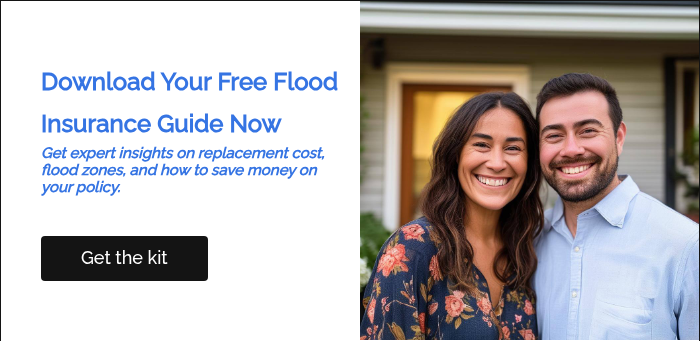
Cheaper for most Houston homeowners
✔ Coverage capped at $250,000 (structure) & $100,000 (contents)
✔ Cheaper for most Houston homeowners
✔ Coverage capped at $250,000 (structure) & $100,000 (contents)
Almost 30% of flood insurance claims come from low-risk areas, so do not assume your home is safe.
Our team has helped hundreds of Houston homeowners understand their flood risk and secure the right flood insurance coverage. If you need a personalized flood risk assessment, contact us today.
Not sure which policy is best for you? Get a personalized flood insurance quote today and ensure your home is fully protected.
📌
Now that you understand how flood insurance rates are determined, it’s time to take action:
Navigating the Waters of Flood Insurance in COBRA Zones
When it comes to protecting your home from the unpredictable forces of nature, understanding your flood insurance options is crucial. Many homeowners find themselves navigating the complex landscape of flood insurance, especially when their property lies within a COBRA zone. You’ve asked, and we’re here to answer all your pressing questions about flood insurance in these unique areas.
What Exactly is a COBRA Zone?
What makes COBRA zones different from other flood zones, and why does it matter for my flood insurance?
COBRA zones, or Coastal Barrier Resources System areas, are designated by the federal government to protect natural coastal barriers. Development in these zones is discouraged to conserve natural habitats, minimize loss of human life, and reduce federal expenditure on infrastructure and disaster relief. For homeowners, this means that obtaining federal flood insurance through the National Flood Insurance Program (NFIP) is not an option, making it essential to explore alternative insurance solutions.
Can I Get Flood Insurance in a COBRA Zone?
They Ask: If federal flood insurance isn’t available in COBRA zones, what are my options for protecting my property?
You Answer: While properties in COBRA zones are ineligible for federal flood insurance, private flood insurance becomes a vital alternative. Private insurers offer policies designed to meet the unique needs of homeowners in these areas, ensuring you can secure the protection you need against flooding. It’s crucial to work with an insurance agent who understands the intricacies of flood insurance policies in COBRA zones to find the best coverage for your home.
How Do I Know If My Property is in a COBRA Zone?
They Ask: How can I determine if my property is located within a COBRA zone and understand the implications for my flood insurance coverage?
You Answer: Identifying whether your property is in a COBRA zone is the first step in navigating your flood insurance options. You can use tools like the CBRS Mapper provided by the Fish and Wildlife Service or consult with a knowledgeable insurance agent. Understanding your property’s location helps clarify your insurance options and ensures you’re pursuing the right coverage for your situation.
What Should I Look for in a Flood Insurance Policy?
They Ask: What key factors should I consider when choosing a flood insurance policy for my property in a COBRA zone?
You Answer: When selecting a flood insurance policy in a COBRA zone, consider coverage limits, deductibles, and exclusions. It’s also important to assess the insurer’s reputation and the policy’s provisions for claims handling. An insurance agent specializing in flood insurance can help you compare policies and choose one that offers comprehensive protection tailored to your needs.
Conclusion
Understanding flood insurance in COBRA zones doesn’t have to be a daunting task. By asking the right questions and seeking expert advice, you can navigate the complexities of securing the right flood insurance for your property. Remember, protecting your home from flooding is about ensuring your peace of mind and financial security, regardless of where you live.
Navigating the Waters of Flood Insurance in COBRA Zones
When it comes to protecting your home from the unpredictable forces of nature, understanding your flood insurance options is crucial. Many homeowners find themselves navigating the complex landscape of flood insurance, especially when their property lies within a COBRA zone. You’ve asked, and we’re here to answer all your pressing questions about flood insurance in these unique areas.
What Exactly is a COBRA Zone?
What makes COBRA zones different from other flood zones, and why does it matter for my flood insurance?
COBRA zones, or Coastal Barrier Resources System areas, are designated by the federal government to protect natural coastal barriers. Development in these zones is discouraged to conserve natural habitats, minimize loss of human life, and reduce federal expenditure on infrastructure and disaster relief. For homeowners, this means that obtaining federal flood insurance through the National Flood Insurance Program (NFIP) is not an option, making it essential to explore alternative insurance solutions.
Can I Get Flood Insurance in a COBRA Zone?
They Ask: If federal flood insurance isn’t available in COBRA zones, what are my options for protecting my property?
You Answer: While properties in COBRA zones are ineligible for federal flood insurance, private flood insurance becomes a vital alternative. Private insurers offer policies designed to meet the unique needs of homeowners in these areas, ensuring you can secure the protection you need against flooding. It’s crucial to work with an insurance agent who understands the intricacies of flood insurance policies in COBRA zones to find the best coverage for your home.
How Do I Know If My Property is in a COBRA Zone?
They Ask: How can I determine if my property is located within a COBRA zone and understand the implications for my flood insurance coverage?
You Answer: Identifying whether your property is in a COBRA zone is the first step in navigating your flood insurance options. You can use tools like the CBRS Mapper provided by the Fish and Wildlife Service or consult with a knowledgeable insurance agent. Understanding your property’s location helps clarify your insurance options and ensures you’re pursuing the right coverage for your situation.
What Should I Look for in a Flood Insurance Policy?
They Ask: What key factors should I consider when choosing a flood insurance policy for my property in a COBRA zone?
You Answer: When selecting a flood insurance policy in a COBRA zone, consider coverage limits, deductibles, and exclusions. It’s also important to assess the insurer’s reputation and the policy’s provisions for claims handling. An insurance agent specializing in flood insurance can help you compare policies and choose one that offers comprehensive protection tailored to your needs.
Conclusion
Understanding flood insurance in COBRA zones doesn’t have to be a daunting task. By asking the right questions and seeking expert advice, you can navigate the complexities of securing the right flood insurance for your property. Remember, protecting your home from flooding is about ensuring your peace of mind and financial security, regardless of where you live.
Navigating the Waters of Flood Insurance in COBRA Zones
When it comes to protecting your home from the unpredictable forces of nature, understanding your flood insurance options is crucial. Many homeowners find themselves navigating the complex landscape of flood insurance, especially when their property lies within a COBRA zone. You’ve asked, and we’re here to answer all your pressing questions about flood insurance in these unique areas.
What Exactly is a COBRA Zone?
What makes COBRA zones different from other flood zones, and why does it matter for my flood insurance?
COBRA zones, or Coastal Barrier Resources System areas, are designated by the federal government to protect natural coastal barriers. Development in these zones is discouraged to conserve natural habitats, minimize loss of human life, and reduce federal expenditure on infrastructure and disaster relief. For homeowners, this means that obtaining federal flood insurance through the National Flood Insurance Program (NFIP) is not an option, making it essential to explore alternative insurance solutions.
Can I Get Flood Insurance in a COBRA Zone?
They Ask: If federal flood insurance isn’t available in COBRA zones, what are my options for protecting my property?
You Answer: While properties in COBRA zones are ineligible for federal flood insurance, private flood insurance becomes a vital alternative. Private insurers offer policies designed to meet the unique needs of homeowners in these areas, ensuring you can secure the protection you need against flooding. It’s crucial to work with an insurance agent who understands the intricacies of flood insurance policies in COBRA zones to find the best coverage for your home.
How Do I Know If My Property is in a COBRA Zone?
They Ask: How can I determine if my property is located within a COBRA zone and understand the implications for my flood insurance coverage?
You Answer: Identifying whether your property is in a COBRA zone is the first step in navigating your flood insurance options. You can use tools like the CBRS Mapper provided by the Fish and Wildlife Service or consult with a knowledgeable insurance agent. Understanding your property’s location helps clarify your insurance options and ensures you’re pursuing the right coverage for your situation.
What Should I Look for in a Flood Insurance Policy?
They Ask: What key factors should I consider when choosing a flood insurance policy for my property in a COBRA zone?
You Answer: When selecting a flood insurance policy in a COBRA zone, consider coverage limits, deductibles, and exclusions. It’s also important to assess the insurer’s reputation and the policy’s provisions for claims handling. An insurance agent specializing in flood insurance can help you compare policies and choose one that offers comprehensive protection tailored to your needs.
Conclusion
Understanding flood insurance in COBRA zones doesn’t have to be a daunting task. By asking the right questions and seeking expert advice, you can navigate the complexities of securing the right flood insurance for your property. Remember, protecting your home from flooding is about ensuring your peace of mind and financial security, regardless of where you live.
Navigating the Waters of Flood Insurance in COBRA Zones
When it comes to protecting your home from the unpredictable forces of nature, understanding your flood insurance options is crucial. Many homeowners find themselves navigating the complex landscape of flood insurance, especially when their property lies within a COBRA zone. You’ve asked, and we’re here to answer all your pressing questions about flood insurance in these unique areas.
What Exactly is a COBRA Zone?
What makes COBRA zones different from other flood zones, and why does it matter for my flood insurance?
COBRA zones, or Coastal Barrier Resources System areas, are designated by the federal government to protect natural coastal barriers. Development in these zones is discouraged to conserve natural habitats, minimize loss of human life, and reduce federal expenditure on infrastructure and disaster relief. For homeowners, this means that obtaining federal flood insurance through the National Flood Insurance Program (NFIP) is not an option, making it essential to explore alternative insurance solutions.
Can I Get Flood Insurance in a COBRA Zone?
They Ask: If federal flood insurance isn’t available in COBRA zones, what are my options for protecting my property?
You Answer: While properties in COBRA zones are ineligible for federal flood insurance, private flood insurance becomes a vital alternative. Private insurers offer policies designed to meet the unique needs of homeowners in these areas, ensuring you can secure the protection you need against flooding. It’s crucial to work with an insurance agent who understands the intricacies of flood insurance policies in COBRA zones to find the best coverage for your home.
How Do I Know If My Property is in a COBRA Zone?
They Ask: How can I determine if my property is located within a COBRA zone and understand the implications for my flood insurance coverage?
You Answer: Identifying whether your property is in a COBRA zone is the first step in navigating your flood insurance options. You can use tools like the CBRS Mapper provided by the Fish and Wildlife Service or consult with a knowledgeable insurance agent. Understanding your property’s location helps clarify your insurance options and ensures you’re pursuing the right coverage for your situation.
What Should I Look for in a Flood Insurance Policy?
They Ask: What key factors should I consider when choosing a flood insurance policy for my property in a COBRA zone?
You Answer: When selecting a flood insurance policy in a COBRA zone, consider coverage limits, deductibles, and exclusions. It’s also important to assess the insurer’s reputation and the policy’s provisions for claims handling. An insurance agent specializing in flood insurance can help you compare policies and choose one that offers comprehensive protection tailored to your needs.
Conclusion
Understanding flood insurance in COBRA zones doesn’t have to be a daunting task. By asking the right questions and seeking expert advice, you can navigate the complexities of securing the right flood insurance for your property. Remember, protecting your home from flooding is about ensuring your peace of mind and financial security, regardless of where you live.
Information contained on this page is provided by an independent third-party content provider. This website make no warranties or representations in connection therewith. If you are affiliated with this page and would like it removed please contact editor @producerpress.com

